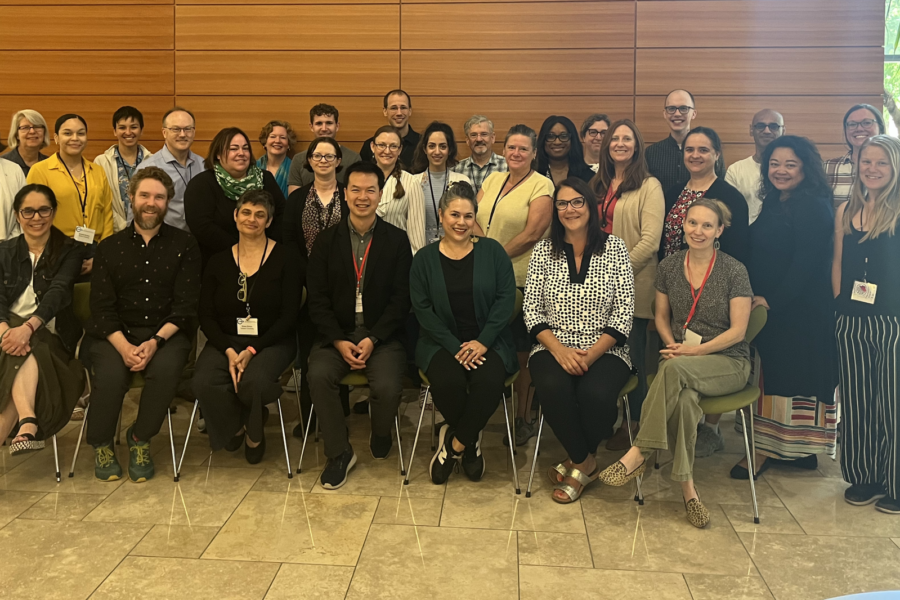A cohort of graduate studies basic-sciences faculty are being trained to facilitate a nationally recognized mentoring training program – and will then will bring it back to their graduate studies colleagues at UNMC. This training is tentatively set to begin this fall.
The Center for the Improvement of Mentored Experiences in Research (CIMER) is recognized by the National Institutes of Health and others as the nation’s premier mentor training program, said Karen Gould, PhD, Graduate Studies assistant dean for student success.
The initiative emerged from a previous Graduate Studies strategic planning retreat, Dr. Gould said. “One of the recommendations of the mentoring task force was to create a structure to provide more training for graduate faculty to enhance mentoring skills,” she said.
The intensive two-day session was held at the University of Wisconsin-Madison.
“It was a facilitator training,” said Erika Boesen, PhD, a faculty participant from cellular and integrative physiology, “which is interesting, because it’s a different skill set than lecturing.”
Dr. Boesen said the training was not didactic, but rather process-based – often going through scenarios. Learning often came through the stimulation of discussion and talking through different ideas and approaches.
“You can learn a lot from other participants,” Dr. Boesen said.
“As a facilitator, you’re guiding the participants through the material and that really allows the participants to engage with the material and also learn figure out which techniques would work best for them and their style of mentorship,” said Lisa Rucks, PhD, a faculty participant from pathology and microbiology.
One of the cornerstones of mentoring is understanding your mentee’s communication style, Dr. Rucks said.
“A lot of the scenarios that we talked through, a lot of the problems that were encountered or ways where people have had a misalignment of expectations and things like that, boil down to communication not being optimal,” Dr. Boesen agreed.
Faculty may have had little formal training in mentoring, “a lot of it is trial and error and then learning from things that didn’t go well,” Dr. Boesen said.
But now the topic of mentoring is much more front-of-mind, not just at UNMC, but at the NIH. It is also a priority for mentees themselves. Potential recruits now ask about mentoring, Dr. Boesen said.
Dr. Rucks admitted she was not sure what to expect from the training but, “I came out a true believer in the process.”
She continued: “This could benefit somebody that has been running a lab for three decades or somebody who is just starting their first faculty position.”
CIMER facilitator peer mentorship training is tentatively set for this fall at UNMC, with additional opportunities in the coming spring and summer. For more information, please contact Dr. Gould.
